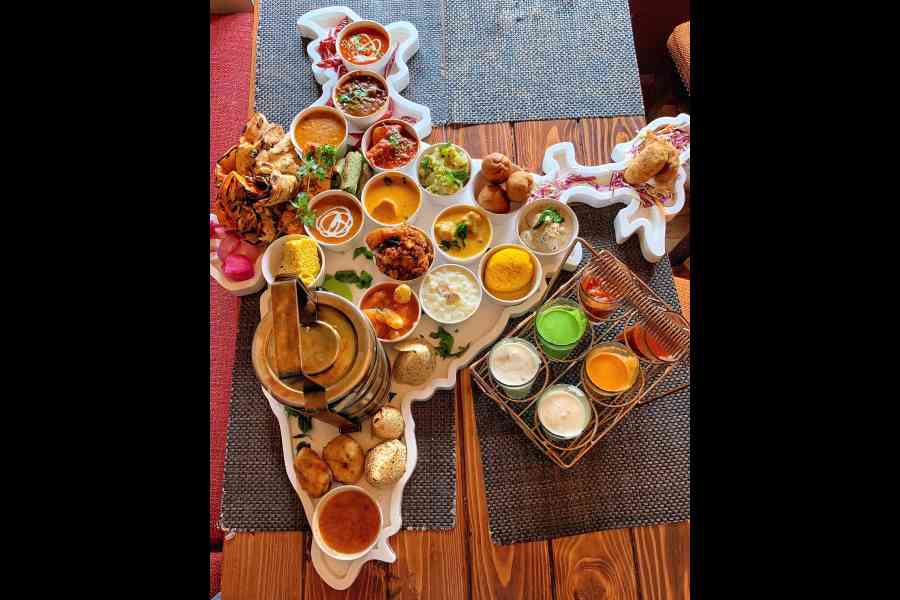Book: Digesting India
Author: Zac O’Yeah
Published by: Speaking Tiger
Price: ₹ 599
For a book that calls itself Digesting India, it begins with indigestion. With his trademark wry humour that often treads the fine line between the witty and the scatological, Zac O’Yeah’s prologue comes with a warning about the perils he faced over thirty years of feasting and travelling in India. Lest we roll our eyes at it as a typical gora’s ‘Delhi Belly’, he has many alternative terms for his accidents of the digestive tract, including “Kathmandu killer-craps”, “Beijing-burps”, “Istanbul-intestines”, “Moroccan motions” and “Zimbabwean zumbas.” Facing such accidents is par for the course or a minor inconvenience for O’Yeah that he meets with “1 kg of Imodium”, lots of alcohol and a sense of humour. He could have avoided such experiences, he concedes; but then he would not have had any stories to tell.
And what stories they turn out to be. Zac O’Yeah’s travelogue and memoir begins in Bengaluru with a 50-page essay, “A Town Called Beershop”. It rambles on about the city’s bookstores and ventures into talking about the city’s watering holes, almost as if a book and a drink go hand in hand for O’Yeah. It was in one such “dive” in the Majestic area of the town (named after the erstwhile single-screen theatre) that he came up with the first few lines of his detective series, “Majestic Trilogy”. It is not the hip-swank microbreweries selling “overpriced, over-perfumed” “biere” but the “unfashionably seedy taverns” that draw O’Yeah: toddy, arrack, fenny, grog or whatever fermented brew is local to the area thus saturate the book. This quest takes him through Bangalore, to an investigation into what town closely resembled R.K. Narayan’s Malgudi, to a jaunt through toddy-soaked, spicy mussel-laden Kerala that made him ponder the mystifying absence of literature on Kongu food as found in the hosiery capital, Tiruppur, as well as in Erode, until he gets some “Goan grog” — fenny — and ends up bumping into the writers, Amitav Ghosh, Kiran Desai and “her then boyfriend Orhan Pamuk”.
Speaking of writers, it feels as if the book is designed to make one chase down one book or author after another. Faulkner was known to have criticised Hemingway, saying “he has never been known to use a word that might cause the reader to check with a dictionary.” In a similar vein, one might say that never has any author made such a compelling case for other writers: E.M. Forster, R.K. Narayan, W. Somerset Maugham, Rudyard Kipling, William Dalrymple, Bruce Chatwin, Pankaj Mishra — O’Yeah refers to them all, often tracing or imagining where they either wrote from or set their novels.
O’Yeah meanders through the rest of the country after Goa, exploring a frugal Gandhian Maharashtra and breaks his dive-bars-only rule with regal meals at Rajasthan after which he goes through the Gangetic plains, clubbing the entire heartland as “Northern Kitchens, Northern Chickens”, before landing in tea country, beginning with Calcutta and then on to the seven sisters and, later, dwelling on spicy porky treats across the northeastern states with a curious stopover at a literary festival in Bhutan. One would think that India’s North would include Himalayan regions but this traveller of time and space makes no mention of Kashmir, Ladakh, Uttarakhand or Himachal Pradesh.
The eight-chapter-long memoir leaves the reader feeling short-changed. A gourmand and raconteur in O’Yeah’s league should have left the reader much to chew on had he dwelt some more on a good Kashmiri tabk maaz.










